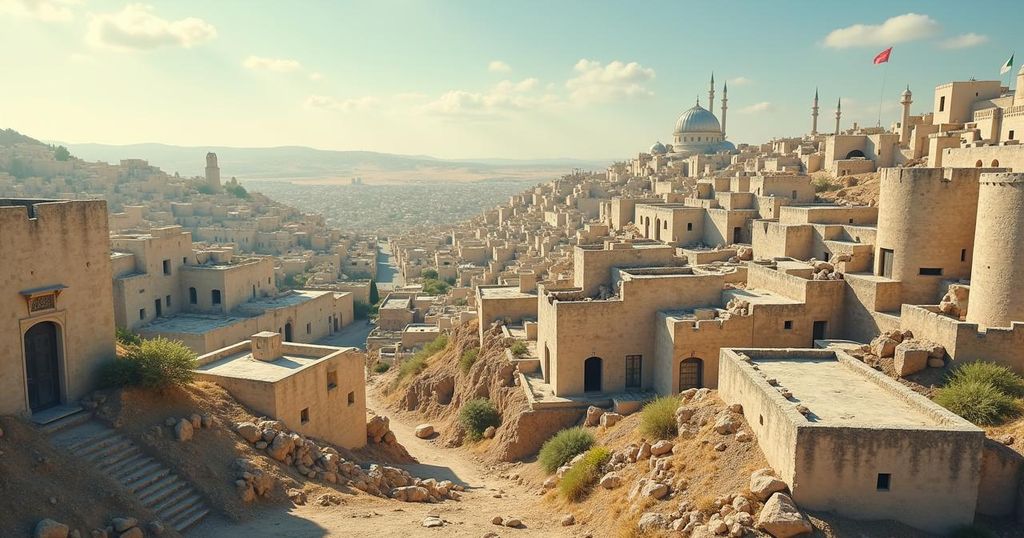The article discusses how a liberated Palestine symbolizes a threat to global capitalism, emphasizing the colonial structures behind the ecological crisis and the exploitation of the Global South. It argues for economic sovereignty and highlights the paradox of immense productive capacity coexisting with widespread poverty, calling for a democratic overhaul of production systems to address these crises effectively.
The quest for a liberated Palestine parallels the aspiration for a liberated Middle East, which poses a significant challenge to the foundations of global capitalism. In essence, the prevailing economic system is underpinned by a capitalist imperialism that prioritizes profit accumulation at the expense of ecological and social responsibility. The ecological crisis manifests predominantly through colonial structures, where countries of the imperial core are responsible for the vast majority of emissions contributing to climate breakdown, while the Global South—having contributed minimally—bears the brunt of its adverse effects. The fundamental paradox of our economic system reveals a striking disparity: despite unprecedented productive capabilities, a significant portion of the global population, 80%, lives in conditions of deprivation. This situation is exacerbated by an economic framework that aligns production with capital’s profit motives rather than societal needs. Hence, while solutions to poverty and climate change are attainable, they remain unaddressed because control over production is not democratized. Furthermore, the Global South’s pursuit of economic sovereignty is crucial, as its liberation struggles represent a direct challenge to the capitalist world economy. The core’s dependence on the cheap labor and resources from poorer nations for its capital accumulation creates a scenario where such liberation efforts are met with violent resistance. Historical precedents, such as interventions in Libya, Iraq, and Palestine, illustrate this ongoing cycle. Palestine’s struggle, therefore, is not only a moral issue but a critical economic concern; a liberated Palestine threatens the stability of capitalist interests, prompting severe retaliatory forces from the core. This reality necessitates awareness and mobilization in support of liberation efforts.
The article explores the intrinsic link between liberation movements in occupied territories like Palestine and the broader implications for global capitalism. It highlights how capitalist structures are entrenched in historical systems of colonialism and imperialism, emphasizing that the ecological crisis is not merely an environmental issue but a manifestation of exploitation and appropriation directed at the Global South by the imperial core. The urgent need for economic democracy and sovereignty in the Global South is posited as essential for genuine ecological transitions and sustainable development.
In summary, the liberation of Palestine represents a wider struggle against the exploitative mechanisms of global capitalism. Addressing the interlinked issues of ecological crisis, economic inequality, and political sovereignty requires a transformative approach rooted in collective democratic control over production. Such structural changes are vital to correcting the systemic inequities faced by the Global South and are essential for the realization of a just and equitable global society.
Original Source: scheerpost.com






